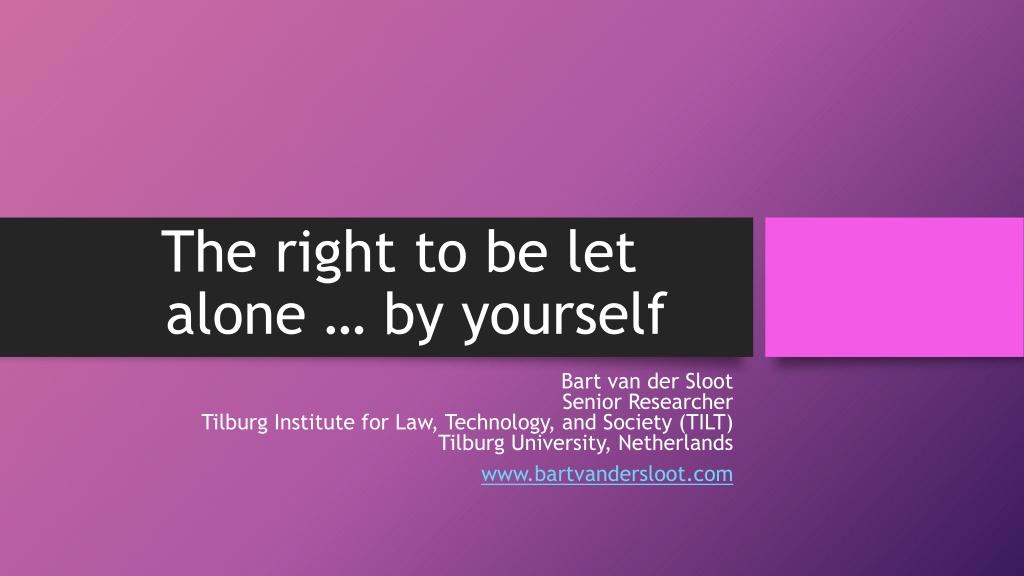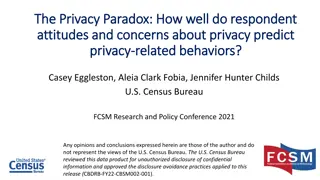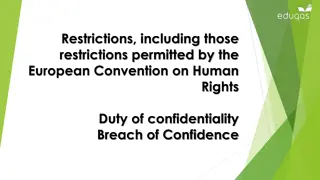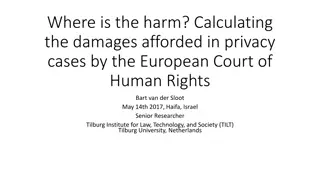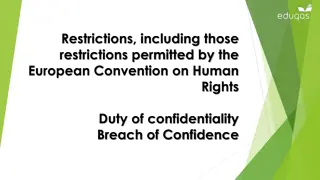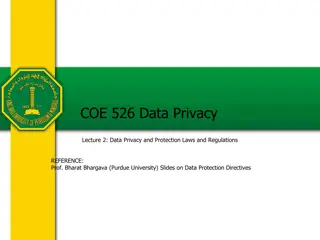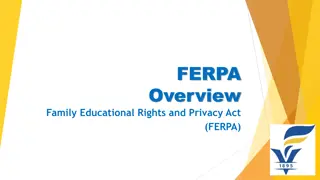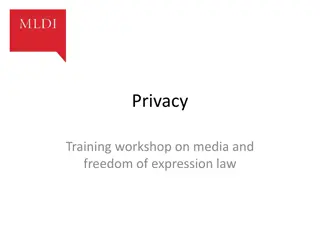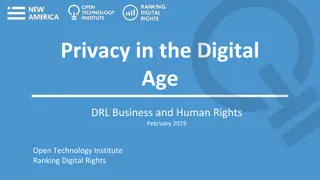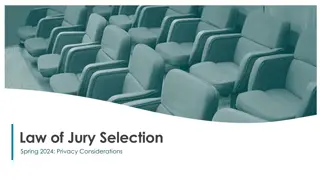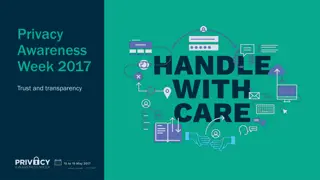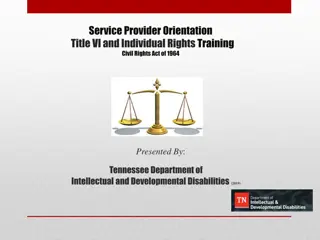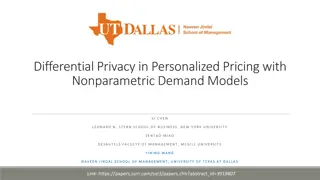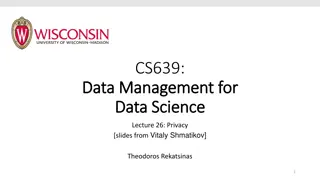Understanding Privacy Rights in Europe: A Comprehensive Overview
This content delves into the common definitions of privacy and the constitutional protection of privacy in Europe. It explores the right to privacy in individual, company, and government contexts, as well as ways to analyze the correlation between individual rights and others' duties. The discussion also addresses the argument that individuals have no legitimate claim to privacy, challenging the notion that privacy is only sought to conceal wrongdoing.
Download Presentation

Please find below an Image/Link to download the presentation.
The content on the website is provided AS IS for your information and personal use only. It may not be sold, licensed, or shared on other websites without obtaining consent from the author. Download presentation by click this link. If you encounter any issues during the download, it is possible that the publisher has removed the file from their server.
E N D
Presentation Transcript
The right to be let alone by yourself Bart van der Sloot Senior Researcher Tilburg Institute for Law, Technology, and Society (TILT) Tilburg University, Netherlands www.bartvandersloot.com
Common definitions of Privacy These considerations lead to the conclusion that the protection afforded to thoughts, sentiments, and emotions, expressed through the medium of writing or of the arts, so far as it consists in preventing publication, is merely an instance of the enforcement of the more general right of the individual to be let alone. Warren and Brandeis, 1890. Privacy is the claim of individuals, groups, or institutions to determine for themselves when, how, and to what extent information about them is communicated to others. Westin, 1967 Privacy is the capacity to negotiate social relationships by controlling access to information about oneself. Agre & Rotenberg, 1998.
Common definitions of Privacy Constitutional protection of privacy in Europe: Everyone has the right to respect for his private and family life, his home and his correspondence. There shall be no interference by a public authority with the exercise of this right except . Article 8 European Convention on Human Rights. Horizontal protection of privacy in Europe: Any person who has suffered material or non-material damage as a result of an infringement of this Regulation shall have the right to receive compensation from the controller or processor for the damage suffered. Article 82 General Data Protection Regulation.
Common definitions of Privacy: privacy can be invoked vis-a-vis others Indivdiuals Individual Companies Government
The individual has a right only in so far it correlates with the duties of others and the other way around Indivdiuals Individual Companies Government
Ways to problematize the correlation between rights (indvidual) and duties (others) Indivdiuals Individual Companies Government
The individual has no legitimate claim to privacy (nothing to hide argument) Indivdiuals Individual Companies Government
The individuals claim to privacy is realy to conceal mischief towards others (e.g. feminist critique) Indivdiuals Individual Companies Other individuals Government
The individuals claim to privacy is in itself legitimate, but negatively effects others (network effect) Indivdiuals Individual Companies Other individuals Government
Privacy is not about the individual(s interests) only, it is about a group of society as a whole Indivdiuals Individual Companies Societal interest Government
The violation of the individuals privacy is systemic, i.e. there is no concrete other ? Individual ? ?
Others have (virtue) duties to protect the individual s privacy, irrespective of rights Indivdiuals Individual Companies Government
The individual has (virtue) duties to protect her own privacy Individual Herself
The right to be let alone . by yourself Individual Herself
The right to be let alone . by yourself The problem here is self-conflict The indivdiual/ the I is not uniform/one > the Individual/the I is conflicted, consists of different dissimalar parts of the self Who we perceive as I , as our identity is a choice/it is the result of internal conflict Forgetting, blocking and surpessing information about ourselves is an important instrument in identity formation Privacy in this sense helps us building that identity And allows us to recover and build a new identity/story about ourselves when we are unmasked
The right to be let alone . by yourself Big Data; profiling; inferred data; predictive analytics Past: What is put on the internet stays on the internet; costs of storing data increasinly low. Present: Increased possibilities to profile people; others claim to know the individual better then herself Future: Profiling and predictive analytics can be used to map an individual s future, as to health, economic well-being, etc. A new problem arises: the problem is not (only) that other s have (acces to) information about me that I do not want them to have Others may have information about me which I myself do not want to have
The right to be let alone . by yourself A problem may be that I do not want the other to know: I use to be obese/had a experimental gothic fase/was sexually abused/etc. I can not help myself but eat chocolate/listen to Britney Spears/go to the casino/etc. I will be sick/I have a high chance of being unemployed/etc. But an additional problem may be that I myself do not want that: I use to be obese/had a experimental gothic fase/was sexually abused/etc. I can not help myself but eat chocolate/listen to Britney Spears/go to the casino/etc. I will be sick/I have a high chance of being unemployed/etc.
The right to be let alone . by yourself Individual Other Objects Individual
The right to be let alone . by yourself The question is of course how we could envisage such a right Building blocks could be Right to be forgotten Negative informational freedom Right to be witheld from incidental findings (medical realm) But granting a claim-right to an individual would mean precisely that she is still conciously engaged with that information she wants to block/surpress And how can others have a duty not to communicate information about the individual that is true/valid/correct?
